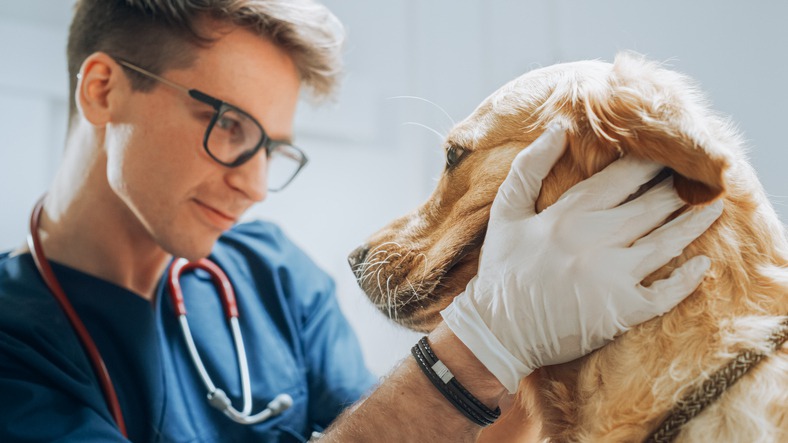Choosing the right veterinary clinic can be a daunting task, given how much we care about our pets. With so many options available, it’s essential to know what to look for to make the best decision for your furry friend’s health and well-being.
Choosing Between Different Veterinary Clinics
To choose the right veterinary clinic, consider factors like the clinic’s reputation, services offered, location, and how comfortable you and your pet feel with the staff. Look for testimonials and reviews, visit the clinic to observe the environment, and ask about their range of services and emergency care options.
Reputation and Reviews
One of the first steps is to check the clinic’s reputation. Look for reviews and testimonials from other pet owners. You can find these online or by asking friends and family for recommendations. A good clinic will have plenty of positive feedback and happy customers who share their experiences.
Services Offered
Different clinics offer different services. Make sure the clinic provides the specific care your pet needs, such as routine check-ups, vaccinations, dental care, and surgical procedures. It’s also helpful if they have in-house labs and diagnostic tools to offer comprehensive care without having to refer you elsewhere.
Dental care is often overlooked but is a critical part of your pet’s health. Look for clinics that have an experienced vet dentist. Dental diseases can cause significant pain and health issues if not addressed. Regular dental check-ups and cleanings can keep your pet’s teeth and gums healthy.
Staff Qualifications and Friendliness
The veterinary staff’s qualifications are crucial. Ensure the vets are licensed and have the necessary experience. It’s also important to assess how friendly and caring the staff is. The clinic should have a welcoming atmosphere where your pet feels safe and well-cared for.
Cleanliness and Facilities
A clean and well-maintained clinic is essential. Visit the clinic to check the cleanliness of the waiting area, exam rooms, and facilities. Good hygiene protocols are vital to prevent the spread of infections and ensure your pet’s health.
Pricing and Payment Options
Cost is always a consideration. Compare pricing among different clinics to ensure you’re getting good value for your money. Ask about payment plans and if they accept pet insurance. Affordability without compromising care is key.
Emergency Services
Emergency care is another vital aspect. Not all clinics offer 24-hour emergency services, so it’s essential to know what to do in case of an after-hours emergency. A clinic that offers round-the-clock emergency care can provide peace of mind.
Communication and Compassion
Communication is crucial in veterinary care. Choose a clinic where the staff takes the time to explain procedures, treatment options, and answer your questions. A compassionate team will prioritize your pet’s well-being and make you feel at ease.
Pet Wellness Plan
If you’ve just brought home a new puppy, you’ll want a clinic that offers a detailed puppy wellness plan. This plan includes vaccinations, regular health checks, and other preventive care to ensure your puppy grows up healthy. It’s a proactive approach that can save you stress and money in the long run.
Location and Convenience
The clinic’s location is also important. A nearby clinic makes it easier to schedule regular visits and quickly get help in emergencies. Check their hours of operation to ensure they fit into your schedule, and see if they offer convenient services like online booking or telemedicine.
Specialist Services
Some pets may require specialized care. Whether it’s orthopedic surgery, dermatology, or behavioral consultation, having access to specialists ensures your pet can get the best possible treatment. Ask if the clinic works with or has specialists on staff.
Personal Comfort and Trust
Finally, trust your instincts. You should feel comfortable with the clinic you choose. It might not be the right fit if you and your pet don’t feel at ease. The relationship between you, your pet, and the vet should be built on trust and mutual respect. If your pet needs diagnostic imaging, such as a dog X ray, ensure the clinic has the necessary equipment. Accurate and timely diagnostics can make a significant difference in treatment outcomes.
Scheduling a Visit
Before making a final decision, consider scheduling a visit to meet the vet and staff. This gives you a chance to ask questions, tour the facility, and see how they interact with other pets. It’s a good opportunity to ensure that the clinic meets your expectations and needs.
Extra Tips to Consider
-
Look for clinics that offer wellness programs or packages for regular preventive care.
-
Check if the clinic is involved in community events, pet health education, or responsible pet ownership programs.
-
Evaluate their approach to pain management and overall pet comfort during treatments.
-
Verify the clinic’s accreditation and if they adhere to best practices and protocols in veterinary medicine.
Assessing Clinic Policies
It’s important to understand the clinic’s policies on various matters such as cancellations, boarding, and appointment scheduling. Knowing these details can help you plan better and avoid any unexpected surprises.
-
Ask about their policy on missed appointments or late cancellations.
-
Check if they provide boarding services and what the conditions are.
-
Inquire about their follow-up procedures post-treatment or surgery.
Final Thoughts
Choosing the right veterinary clinic for your pet involves careful consideration of their services, staff, facilities, and overall environment. By taking these factors into account, you can ensure your pet receives the best possible care. Trust your instincts and gather all the information you need to make an informed decision that you and your furry friend will be happy with.





